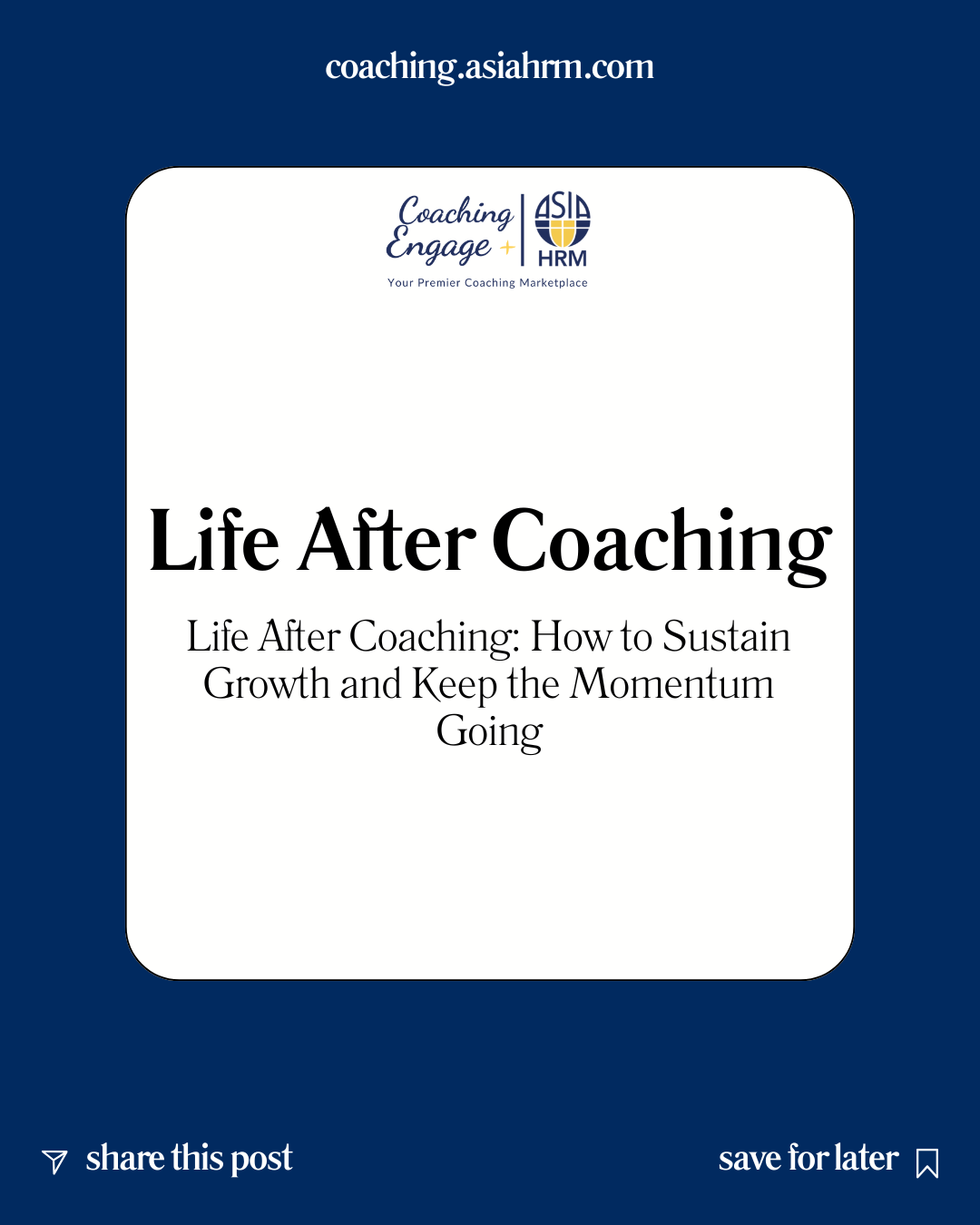Life after coaching: Completing a coaching program is a milestone worth celebrating. You’ve worked hard, gained clarity, and made meaningful progress. But what happens after the sessions end? How do you continue evolving and maintain the momentum you’ve built without the regular guidance of a coach?
Sustaining growth post-coaching is both a challenge and an opportunity. With the right mindset and strategies, you can keep progressing toward your goals and even uncover new paths for personal and professional development.
1. Embrace a Growth Mindset
Growth doesn’t stop when coaching ends. Adopting a mindset that values learning and adaptation is crucial for continued progress.
Key Steps:
- Stay Curious: Treat every experience as an opportunity to learn.
- Be Open to Feedback: Seek input from trusted peers or mentors.
- Reflect Regularly: Set aside time to evaluate your actions, results, and next steps.
Example: Sarah, a former coachee, developed the habit of journaling her wins and challenges weekly. This simple practice kept her focused and motivated long after her coaching sessions ended.
2. Set New Goals and Revisit Old Ones
After achieving your initial coaching goals, it’s time to dream bigger or refine your focus.
How to Stay Goal-Oriented:
- Reassess Priorities: Are your goals still aligned with your vision?
- Break Them Down: Divide larger objectives into smaller, manageable steps.
- Celebrate Milestones: Reward yourself for progress, no matter how small.
Revisiting your goals keeps your journey dynamic and ensures you’re always working toward something meaningful.
3. Build a Support System
Without regular coaching sessions, having a network of support can make all the difference.
Tips for Building Support:
- Join Communities: Engage with like-minded individuals in forums, groups, or local meetups.
- Find Accountability Partners: Collaborate with someone who will help you stay on track.
- Seek Continued Learning: Attend workshops, seminars, or webinars that align with your growth areas.
Surrounding yourself with supportive people helps you stay motivated and inspired.
4. Develop Self-Coaching Skills
Becoming your own coach is an empowering way to maintain momentum. Self-coaching involves applying the tools and techniques you learned during your program.
Self-Coaching Practices:
- Ask Powerful Questions: Challenge yourself with questions like, “What’s my next best step?” or “What’s holding me back?”
- Practice Gratitude: Regularly acknowledge the progress you’ve made.
- Stay Accountable: Use tools like habit trackers or goal planners to keep yourself on course.
5. Revisit Coaching When Needed
There’s no rule against seeking additional coaching in the future. Life evolves, and new challenges or opportunities may arise that benefit from professional guidance.
When to Consider Returning:
- You’re facing significant life changes.
- You feel stuck or unmotivated.
- You’re ready to tackle new, ambitious goals.
Coaching is a resource you can return to whenever you need clarity, direction, or support.
Take Control of Your Life
Whether you’re starting your coaching journey or stepping into life after coaching, maintaining momentum requires intentional action. Remember, the tools you’ve gained during coaching are yours for life. Use them to stay focused, motivated, and aligned with your vision.
Ready to explore how coaching can help you take control of your life? Read our article on taking control with coaching here.


3 thoughts on “Life After Coaching: How to Sustain Growth and Keep the Momentum Going”
This isn’t just writing; it’s a beautiful exploration of thought, full of insights that feel like small revelations.